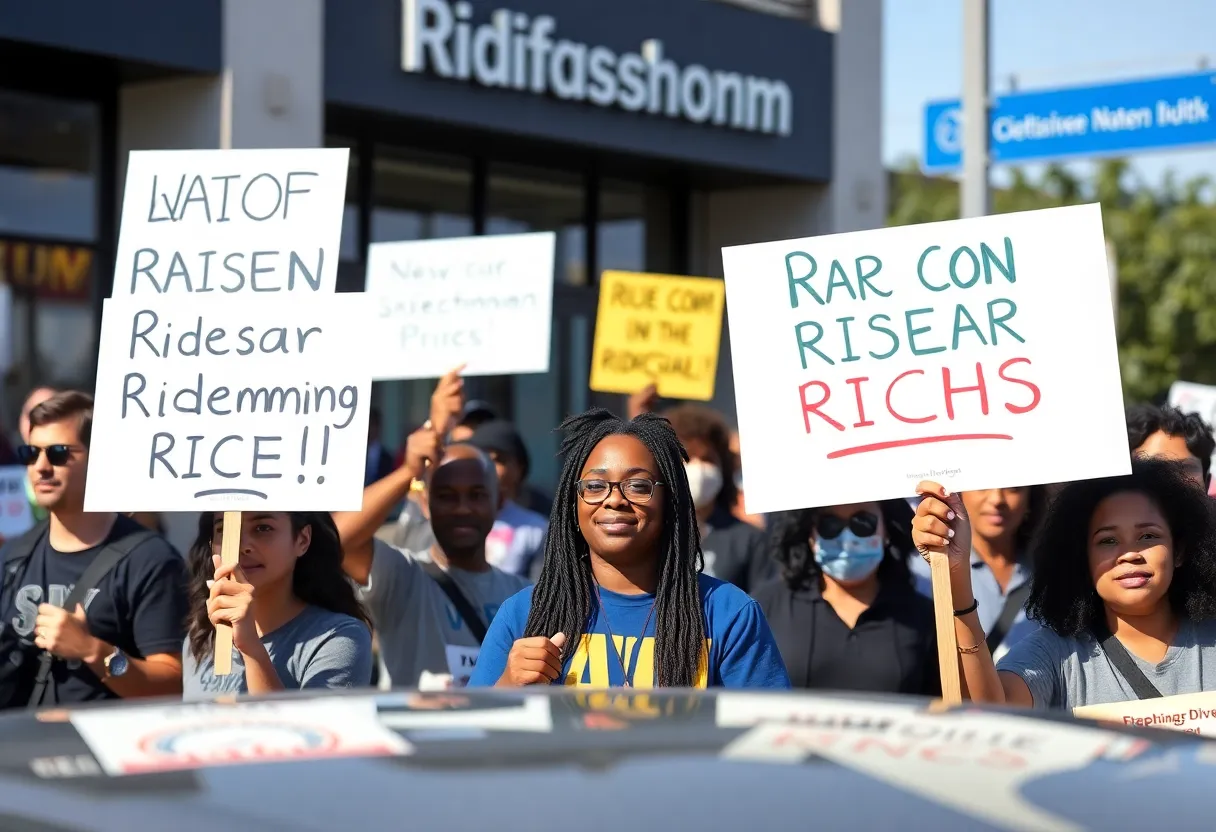California, August 30, 2025
News Summary
California lawmakers have made history by allowing rideshare drivers to unionize and engage in collective bargaining with Uber and Lyft. Supported by Governor Gavin Newsom, this agreement aims to enhance pay and benefits for drivers while reducing insurance mandates on rideshare companies. The legislation permits drivers to select union representatives and negotiate working conditions, marking a significant shift in labor rights in California. Although welcomed by labor advocates, concerns remain regarding the exclusion of other gig workers and the adequacy of protections against strikes.
California lawmakers have reached a historic agreement with Uber and Lyft, allowing rideshare drivers to unionize and engage in collective bargaining. The deal, which has received support from Governor Gavin Newsom, is viewed as a pivotal win for labor rights, aimed at improving pay and benefits for drivers across the state.
The agreement stems from negotiations that sought to establish a framework for drivers to organize. Under the deal, drivers will have the legal option to select a union representative and negotiate working conditions through the proposed Assembly Bill 1340. In exchange for enabling unionization, California leaders are advancing legislation designed to reduce the insurance mandates for rideshare companies. This includes Senate Bill 371, which aims to cut the mandatory insurance coverage for rideshare drivers from $1 million per incident to $300,000. Advocates for the agreement believe this reduction will decrease ridesharing costs for passengers and allow drivers to earn more.
California’s classification of drivers as independent contractors has previously hindered unionization, a critical path for collective bargaining. However, recent court rulings have suggested that legislative action could be taken on this front. The agreement is not anticipated to encompass other gig workers, such as those employed in food delivery services.
Governor Newsom has characterized this development as a remarkable collaboration between labor and business, emphasizing that it empowers the state’s many rideshare drivers. The new regulations are designed as a potential template for other states considering similar efforts to enhance workers’ rights and conditions.
The Service Employees International Union (SEIU) California has welcomed this agreement, labelling it as a significant achievement after a prolonged advocacy campaign focused on worker rights. The deal aligns with Massachusetts’ recent initiative, which also enables drivers to unionize. Drivers are hopeful that the collective bargaining process will improve their treatment and working conditions.
As the legislative momentum builds, state leaders including Assembly Speaker Robert Rivas and Senate Pro Tem Mike McGuire have expressed strong support for the bills, suggesting a smooth path ahead in the California Legislature. Despite the optimism surrounding the agreement, concerns remain. Critics have pointed out that the legislation does not adequately protect against strikes or ensure transparency regarding worker data.
The agreement follows a tumultuous history between California lawmakers and technology companies over gig worker rights. Proposition 22, which passed in 2020, reclassified drivers as independent contractors, effectively blocking unionization efforts. Yet, recent developments have opened doors for legislative solutions.
As plans move forward, drivers will need to gather signatures from at least 10% of active drivers to initiate the certification process for union representation. This requirement is seen as a crucial step toward giving drivers a voice in their work lives amid ongoing challenges with deactivations and other concerns raised by gig companies.
FAQs
What is the main outcome of the agreement between California lawmakers and Uber/Lyft?
The agreement allows rideshare drivers to unionize and negotiate collectively for better pay and benefits.
What legislation is linked to the drivers’ ability to unionize?
Assembly Bill 1340 allows drivers to choose a union representative and negotiate working conditions.
What changes are proposed regarding insurance coverage for rideshare drivers?
Senate Bill 371 proposes to reduce mandatory insurance coverage from $1 million to $300,000 per incident.
How does this agreement affect the classification of rideshare drivers?
Rideshare drivers are currently classified as independent contractors, which has barred traditional unionization pathways.
Are there any limitations to the agreement?
The agreement is not applicable to other gig workers, such as those working in food delivery services.
Key Features of the Agreement
| Aspect | Details |
|---|---|
| Unionization | Rideshare drivers can form unions and negotiate collectively. |
| Insurance Coverage | Reduction of mandatory insurance from $1 million to $300,000. |
| Legislation | Assembly Bill 1340 and Senate Bill 371 facilitate these changes. |
| Driver Classification | Drivers remain classified as independent contractors. |
| Applicability | The agreement does not extend to food delivery gig workers. |
Deeper Dive: News & Info About This Topic
- Los Angeles Times: California Lawmakers Allow Uber/Lyft Drivers to Unionize
- Politico: California Reaches Deal with Uber/Lyft for Gig Worker Unions
- TechCrunch: Uber and Lyft Drivers in California Win a Path to Unionization
- Sacramento Bee: Agreement for Rideshare Unions in California
- San Francisco Chronicle: Rideshare Unions Bill in California
- Wikipedia: Unionization in the US
- Google Search: California Uber Lyft drivers unionization
- Google Scholar: Unionization of Rideshare Drivers
- Encyclopedia Britannica: Unionization
- Google News: Uber Lyft unionization

Author: STAFF HERE SAN DIEGO WRITER
The SAN DIEGO STAFF WRITER represents the experienced team at HERESanDiego.com, your go-to source for actionable local news and information in San Diego, San Diego County, and beyond. Specializing in "news you can use," we cover essential topics like product reviews for personal and business needs, local business directories, politics, real estate trends, neighborhood insights, and state news affecting the area—with deep expertise drawn from years of dedicated reporting and strong community input, including local press releases and business updates. We deliver top reporting on high-value events such as Comic-Con International, San Diego County Fair, and San Diego Pride Festival. Our coverage extends to key organizations like the San Diego Regional Chamber of Commerce and United Way of San Diego County, plus leading businesses in biotechnology, healthcare, and technology that power the local economy such as Qualcomm, Illumina, and Scripps Health. As part of the broader HERE network, including HEREAnaheim.com, HEREBeverlyHills.com, HERECostaMesa.com, HERECoronado.com, HEREHollywood.com, HEREHuntingtonBeach.com, HERELongBeach.com, HERELosAngeles.com, HEREMissionViejo.com, and HERESantaAna.com, we provide comprehensive, credible insights into California's dynamic landscape.





